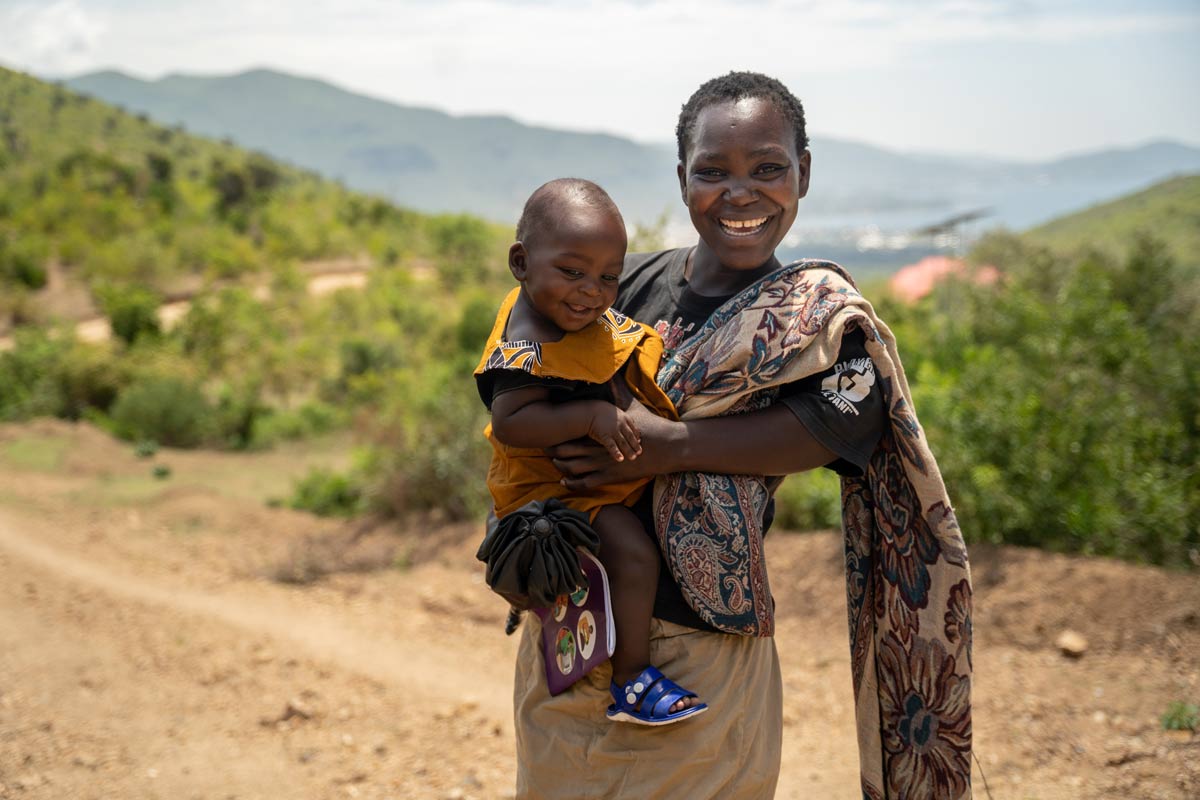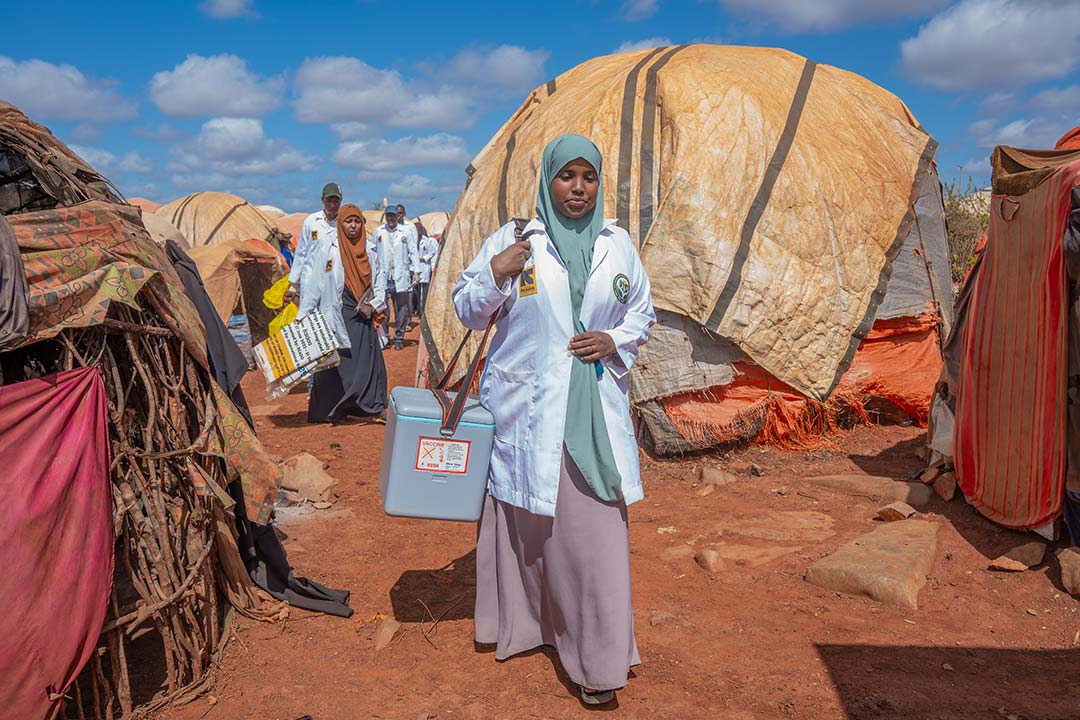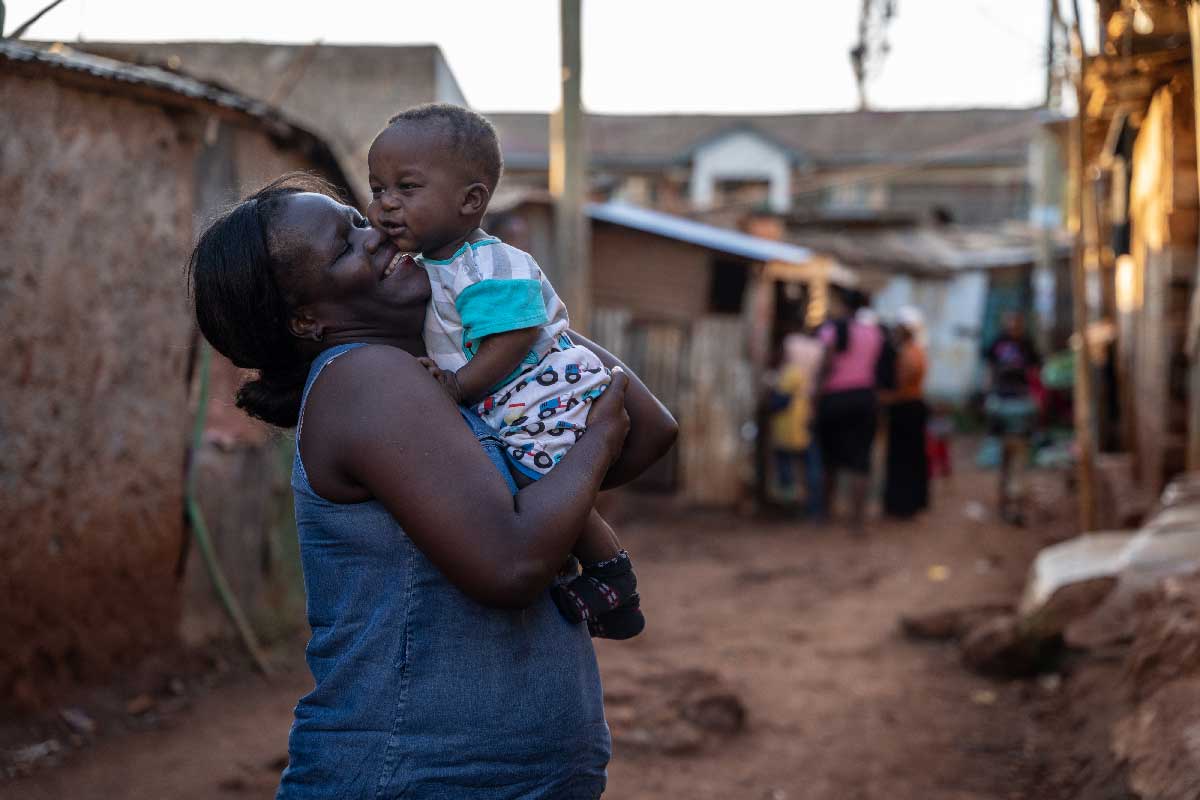Gavi CEO Sania Nishtar reflects on her recent visit to Central African Republic and Nigeria
Gavi’s CEO discusses the importance of putting the countries that Gavi supports at the heart of everything the organisation does, and reflects on lessons and key outcomes from her recent trips to Central African Republic and Nigeria.
- 19 April 2024
- 7 min read
- by Sania Nishtar
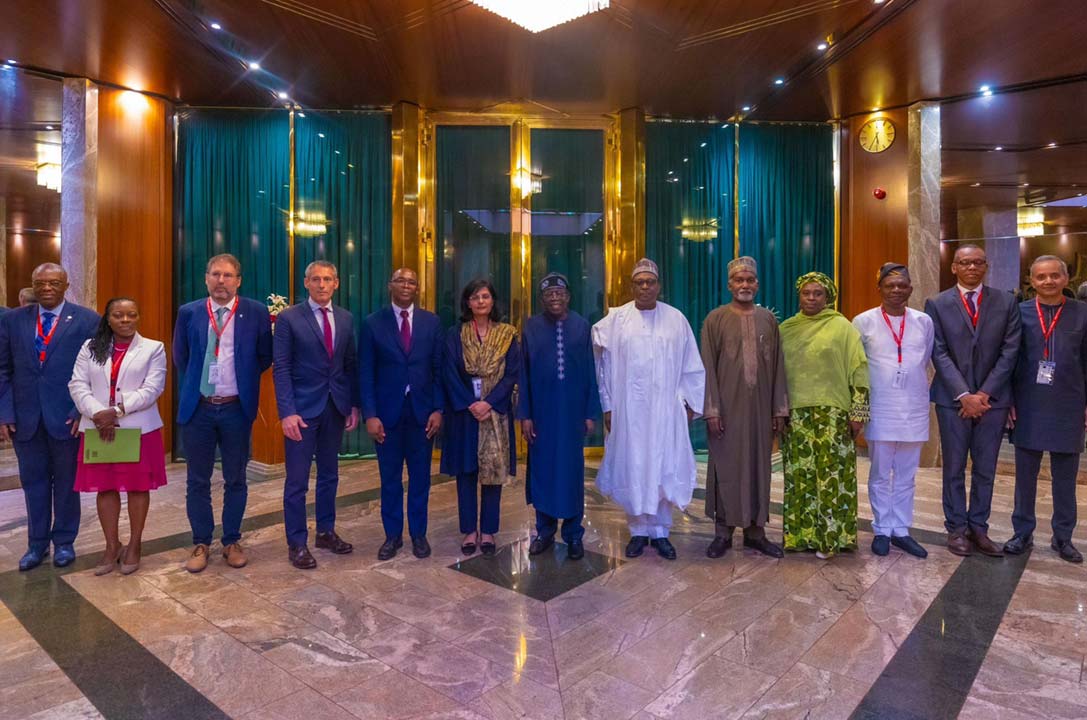
After what has been a full, rewarding and challenging first three weeks, I am happy to share my first of what will be regular updates as CEO.
This initial period has been about listening and learning, planning and setting priorities and, where necessary, acting to tackle burning issues affecting the organisation.
This early period of immersion has been crucial in enabling me to get to grips with the details and nuances of our current ways of working. On Monday, I will reach the milestone of having met every one of Gavi's teams, and over the coming weeks I will be drawing heavily on these insights as I refine a 180-day Action Plan to gear our organisation's culture and ways of working to accelerate delivery and meet the demands of the future.
My meetings with Africa CDC and partner country ministers at the African Union–European Union Summit in March yielded useful insights, but I will continue to prioritise meeting partners, communities and health workers on the ground to learn more about the daily challenges they face and the successes we can build on.
– Dr Sania Nishtar
This period has also been about connecting with the countries and communities we serve. On 31 March, I embarked on my first trip as Gavi CEO to two Gavi implementing countries – Central African Republic (CAR) and Nigeria – to engage with governments and to learn firsthand about the challenges and opportunities for impact faced by our staff, our partners and the communities who are at the heart of our mission.
It is in these communities that all our efforts will stand or fall, which is why one of my main priorities when I started in March was to ensure that all the work that we do as an organisation, and that I do as a CEO, is informed by and grounded in the priorities and experiences of the communities and countries that we serve and partner with. In particular, our mission to reach unimmunised and under-immunised children behoves us to intensify and optimise our work to ensure that communities affected by displacement, conflict and fragility have access to routine immunisation services through strengthened primary health care provision.
Our time in both countries was rich, varied and productive, taking in strategic engagements with ministers and heads of state, meetings with partners and community leaders, and interactions with health workers and the communities they serve.
Openness, pressing needs and recognition in CAR
An overarching reflection is that Gavi is seen as a trusted partner and held in accordingly high esteem in both CAR and Nigeria. My team and I were honoured to be received by His Excellency President Faustin-Archange Touadéra of CAR, and by his commitment of time and attention: an apt reflection of the President's dedication to and leadership on immunisation.
This commitment was also reflected in the degree of openness, transparency and pragmatism that characterised our discussions, which enabled us to rapidly drill down into detailed priority setting, and discuss the recalibration of our technical support to better meet the pressing needs of the country in three principal areas:
- the need for targeted support for data systems to improve the identification of zero-dose and under- immunised children across the country, strengthen routine immunisation and guide decision-making;
- the need to bolster the health workforce; and
- the need to strengthen engagement with communities.
As a result of these discussions, Gavi will make an additional US$ 3 million investment to strengthen each of the identified priorities, including a significant investment in District Health Information System (DHIS2) to support the establishment of a solid data foundation for immunisation. This decision was made public via a press release during our visit. This country-led approach will consolidate health systems support for priority areas that have the maximum potential to serve the immediate needs of people in the country.
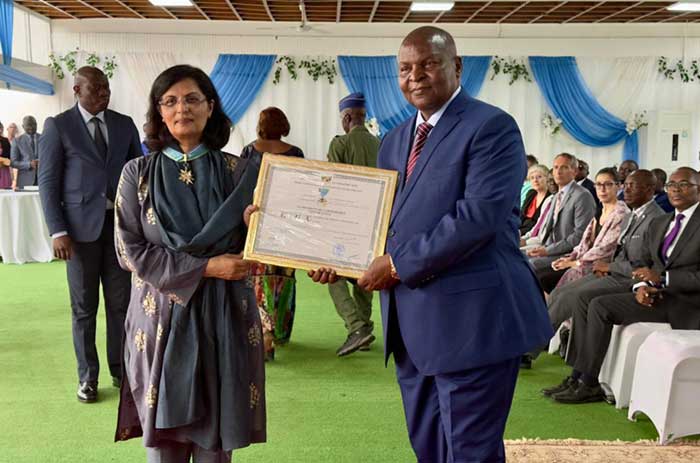
Credit: Pascal Barollier
A packed programme of engagement meant we were also privileged to attend a vaccination clinic in Bangui, and I was honored to accept an award on behalf of Gavi from President Touadéra. Although the award belongs to the organisation as a whole, I want to recognise the special contribution of my colleague Marthe Sylvie Essengue Elouma, our Regional Head for West and Central Africa, whose work has contributed so much to the establishment of a cadre of community health workers in CAR. These workers are continuing to play a key role in immunisation as the country continues its transition from fragility to stability, but more are urgently needed.
Commitment and mutual accountability in Nigeria
From HPV to malaria and zero-dose children, Nigeria is a crucial partner to Gavi and pivotal to the achievement of Gavi's near-term and long-term targets. Our visit set out to reaffirm that partnership, and we were honoured and heartened to see that affirmation reciprocated by His Excellency President Bola Ahmed Tinubu, who graciously received our delegation.
Have you read?
Gavi has previously committed to align with the Nigerian Government's Sector Wide Approach, ensure that US$ 100 million of current Gavi funding and upcoming investments of US$ 150 million support the priorities of Coordinating Minister of Health & Social Welfare Muhammad Ali Pate's Health Sector Renewal Initiative – a major plank in the country's efforts to transform the provision of primary health care and one to which we enthusiastically reaffirmed our commitment.
Ministerial-level discussions also covered vaccine financing ; Nigeria's strong interest in local vaccine manufacturing as part of Gavi's African Vaccine Manufacturing Accelerator (AVMA) initiative; mutual expectations of Nigeria's transition timeline beyond 2028; and the need for a revised and future-facing mutual accountability framework to drive results.
Key to those future results will be rapidly increasing coverage in states such as Sokoto, in Nigeria's northwest, which have traditionally lagged far behind less remote areas of the country. Sokoto is not only one of the areas with the lowest immunisation coverage in Nigeria, it has one of the lowest rates in the world.
At the invitation of Coordinating Minister Pate and with the guidance of the State's Deputy Governor, we were delighted to visit a primary health care facility in Sokoto State to understand some of the challenges currently faced by health workers, and opportunities to accelerate immunisation coverage tailored to local contexts. To that end, we were also privileged to meet with traditional leaders, including His Eminence Muhammadu Sa'ad Abubakar, the Sultan of Sokoto, to gain further insights into how immunisation programmes can be tailored to community contexts.
Next steps
In large part, our success over the coming months and years will be driven by our ability to further optimise our support to implementing countries, and in particular those affected by conflict, fragility and insecurity. My meetings with Africa CDC and partner country ministers at the African Union–European Union Summit in March yielded useful insights, but I will continue to prioritise meeting partners, communities and health workers on the ground to learn more about the daily challenges they face and the successes we can build on.
I am particularly heartened that throughout the development of the Gavi's next five-year strategy, the Gavi Board have sought to ensure that the countries that Gavi supports have a major say in how the strategy is shaped. Over the past 12 months, countries have fed into the largest consultative process that Gavi has undertaken to date, and their recommendations will now join the comprehensive briefings prepared for the Gavi Board as they prepare to finalise the strategy in June.
Finally, I want to take this opportunity to thank the Gavi team – those who accompanied me to CAR and Nigeria, those who assisted from afar, and all those who have welcomed me to the Gavi family – whose hard work and expertise helps make this organisation a success. And I pay tribute to those colleagues from country-facing teams whose commitment, depth of knowledge and tenacity is such a credit to our organisation.
